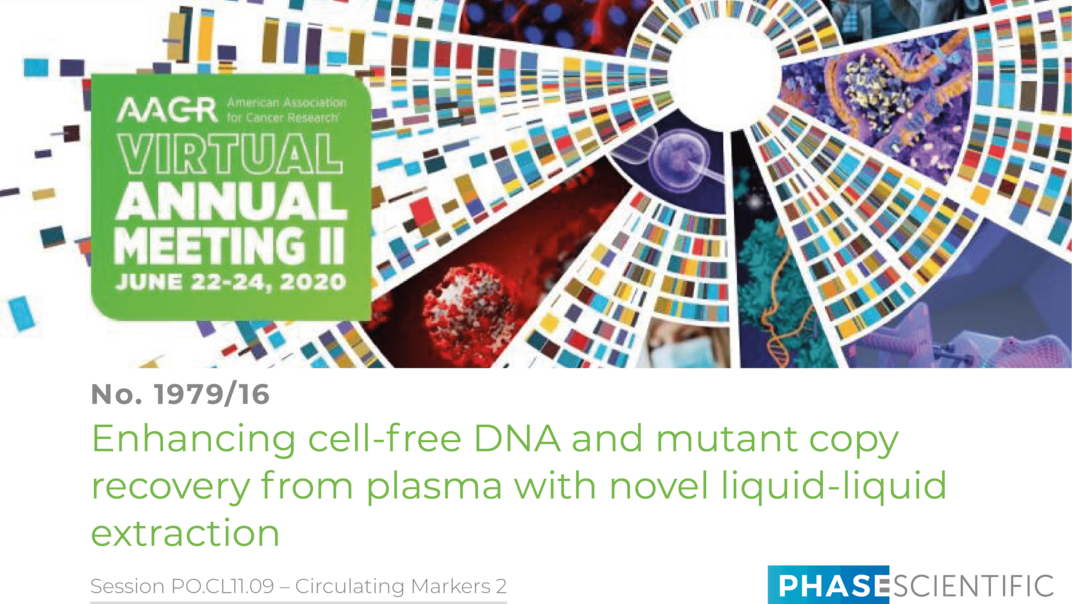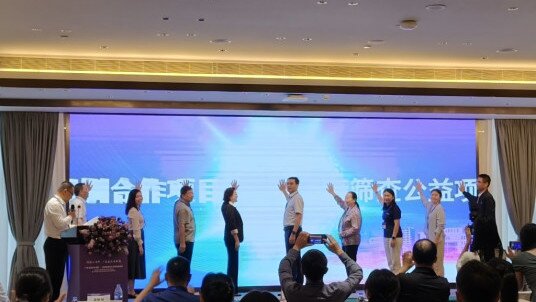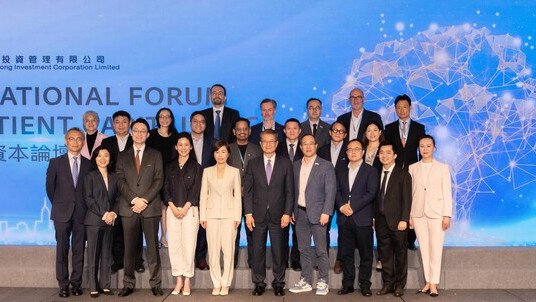Greater cfDNA Recovery May Help Accelerate Development of Cancer Liquid Biopsy Applications
Press ReleaseJune 22, 2020

New findings for PHASE Scientific’s novel liquid extraction technique presented at the AACR Virtual Annual Meeting 2020
MD Anderson-PHASE Scientific joint-research data shows novel liquid extraction improves cfDNA recovery and mutant signal detection
PHASE Scientific, a high-growth biotechnology company that develops innovative sample preparation technologies, announced new findings at the American Association for Cancer Research (AACR) 2020 Virtual Annual Meeting II. The study presented by MD Anderson Cancer Center evaluates the efficacy of PHASE Scientific’s liquid phase DNA isolation method (PHASIFY™) in improving cancer liquid biopsy sensitivity.
Early-stage cancer diagnostics and cancer screening applications are limited by low yields of extracted cell-free DNA (cfDNA) from plasma samples. PHASE Scientific has developed a novel liquid phase DNA isolation method that leverages aqueous two-phase systems (ATPS) to purify and concentrate circulating cfDNA, which can result in increased cfDNA recovery and improved mutant signal detection.
“PHASE Scientific’s technology has shown a significant improvement against conventional solid phase methods for extracting circulating cell-free tumor DNA,” says presenter Dr. Filip Janku, MD, Department of Investigational Cancer Therapeutics, MD Anderson Cancer Center. “The ability to enable such an increase of cfDNA yield in patient plasma samples is vital for improving downstream molecular diagnostic sensitivity, efficiency, and cost.”
The study compared cfDNA recovery and mutation detection from plasma samples extracted with a conventional solid phase method (QIAamp Circulating Nucleic Acid kit – QCNA) and our liquid phase method (PHASIFY™ MAX cfDNA extraction kit). 89 plasma samples from patients with diverse advanced cancers with known BRAF, KRAS or NRAS mutation status were tested.
On average, PHASIFY™ MAX demonstrated a 288% increase in total cfDNA recovery compared to the QCNA kit. Of the samples that confirmed mutations via both methods, PHASIFY™ MAX achieved an average increase of 142% in recovery of mutant copies compared to the QCNA kit. In thirteen samples, mutations were detected in samples extracted with PHASIFY™ MAX, but not with QCNA.
PHASE Scientific Founder and CEO Ricky Chiu commented, “We are excited at the results from our collaboration study with MD Anderson, and the prospects of our technology in unlocking new liquid biopsy applications, especially in enabling early-stage cancer diagnostics and cancer screening.”
The data has been presented online by Dr. Filip Janku, MD Anderson Cancer Center. The poster presentation can be accessed at here after the event.
AACR Presentation Details:
Abstract 1979/16
Filip Janku et al. Enhancing cell-free DNA and mutant copy recovery from plasma with novel liquid-liquid extraction
Session PO.CL11.09 – Circulating Markers 2: June 22, 2020: 9:00AM-6:00PM EDT
News Source: PHASE Scientific



